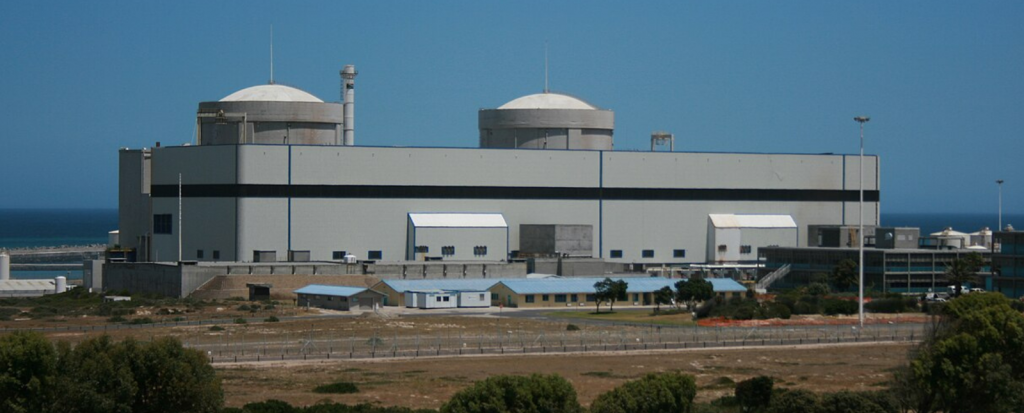African states have long championed nuclear disarmament, from resisting colonial-era testing to advancing the Pelindaba and Prohibition Treaties. Yet frustration is growing over the slow pace of progress and exclusion from global forums. Robin E. Möser argues that African experiences offer lessons to revitalise inclusivity ahead of the 2026 Non-Proliferation of Nuclear Weapons (NPT) Review Conference
The African continent is home to diverse histories and experiences of resistance to French nuclear testing in the Sahara, as well as to US and Western European involvement and cooperation with apartheid South Africa’s nuclear endeavour and complacency during the Cold War.
Despite often being sidelined, African countries have been active in the global nuclear disarmament debate for many decades. The current picture is far removed from earlier scenarios that relegated countries of the Global South to mere observers of Cold War nuclear rivalry between the US and the USSR. Enormous support for the 2021 Treaty on the Prohibition of Nuclear Weapons (TPNW) across the African continent made this abundantly clear.
Yet recently, the once-unwavering support of many African states has shown signs of strain. Strategic geopolitical interdependencies and economic factors related to energy security underpin this trend. African civil-society actors continue to feel marginalised, far from equal participants in shaping global nuclear policy.
African civil-society actors continue to feel marginalised; non-African voices dominate the international diplomatic environment
The growing sentiment is that African voices are not getting a fair hearing compared with those dominating the discussions. African actors are becoming increasingly disillusioned with the non-inclusiveness of the diplomatic environment tasked with governing international nuclear issues. How, then, can we widen the debate and give room to more diverse voices?
In recent years, the global debate on nuclear disarmament has, rightly, broadened. It has now begun to pay attention to voices that had long gone unheard. In the wake of the TPNW’s emergence, some of the most vibrant and dynamic support came from African civil society. Yet African perspectives — and those from the Global South more generally — remain underrepresented in global nuclear policy discussions.
For a working paper, I interviewed African civil-society actors about their views on inclusivity and permeability in current global nuclear disarmament debates. My colleague Michal Onderčo and I identified three persistent barriers for African participants: restrictive Western visa policies; the debate’s exclusionary expert language; and a lack of funding to attend overseas conferences and forums. The latter includes the costs of visa applications, not to mention the long waiting times for a US visa for African applicants.
Restrictive Western visa policies, technical jargon, and a lack of funding to attend overseas conferences all create barriers for African civil-society actors to participate in international nuclear debate
An immediate remedy would be to host diplomatic events in more accessible locations such as Addis Ababa and Nairobi (a UN city). Other initiatives could include simplifying technical jargon; and providing financial support to enhance inclusivity.
From disarmament advocacy to nuclear-energy policy, Africans bring unique and valuable perspectives. Amplifying African voices could help reverse the growing dissatisfaction within the Global South over the non-inclusiveness of international discussions, and foster a more equitable dialogue on nuclear disarmament.
Several key developments stand out for their policy relevance. The African Nuclear-Weapon-Free Zone Treaty – commonly known as the Pelindaba Treaty – marked a milestone in making the African continent free of nuclear weapons. Ratification took more than a decade and was completed only in 2009. Despite this, the Treaty has held firmly for nearly two decades, reaffirming a continent-wide commitment to a nuclear-weapon-free world. Moreover, its legal framework provides novel ideas and policy mechanisms whose significance merits far greater recognition.
Two points are particularly noteworthy. First, all states adhering to the Treaty agreed to forgo the stationing of nuclear explosive devices anywhere on the continent, let alone acquiring them (a prohibition echoed in other agreements). This is not the norm in other world regions, such as Europe. In light of the TPNW and future disarmament obligations, including verification, the Pelindaba model could offer valuable legal leverage.
The Pelindaba Treaty has held firmly for nearly two decades, reaffirming a continent-wide commitment to a nuclear-weapon-free world
Second, unlike the 1968 Treaty on the Non-Proliferation of Nuclear Weapons (NPT), the Pelindaba Treaty explicitly outlaws attacks on nuclear installations. This includes nuclear research infrastructure and power reactors. At present, Africa has only one operational nuclear power plant — the Koeberg facility near Cape Town. Egypt is building another, and several countries, including Ghana, Kenya, and Nigeria, are exploring nuclear-energy development.

The potential risks are clear. In recent years, Ukraine’s Zaporizhzhia power plant has been drawn into the ongoing conflict with Russia. Iran’s Natanz facility has been attacked by the US and Israel, most recently in June 2025. The consequences of military confrontation near or against nuclear installations could be catastrophic. The Pelindaba Treaty thus reminds us that international law should prohibit such attacks.
Much of the crumbling nuclear non-proliferation and arms control architecture reflects its Cold War-era foundations. Taking a long-term view, the world cannot afford to let millions of people from the Global South become disengaged from the discourse. In nuclear debate there remains a lack of permeability for marginalised voices. To make room for new perspectives and best-practice examples, the world must urgently address this. The legacies of South Africa’s full-scale nuclear disarmament and African activism behind the TPNW’s creation are just two of many contributions deserving greater recognition.
A few key observations about the global nuclear disarmament debate stand out. African civil-society actors continue to advocate for a more inclusive and diversified dialogue. Their voices could inject much-needed stimulus to strengthen arms control norms.
Yet who gets to shape this debate remains highly contested. Participants from African countries face particular challenges — despite their consistently vocal stance against nuclear weapons. The Pelindaba Treaty is an inspiration and a platform for African actors to contribute meaningfully to global reductions and disarmament efforts. Now it is time to level the playing field.